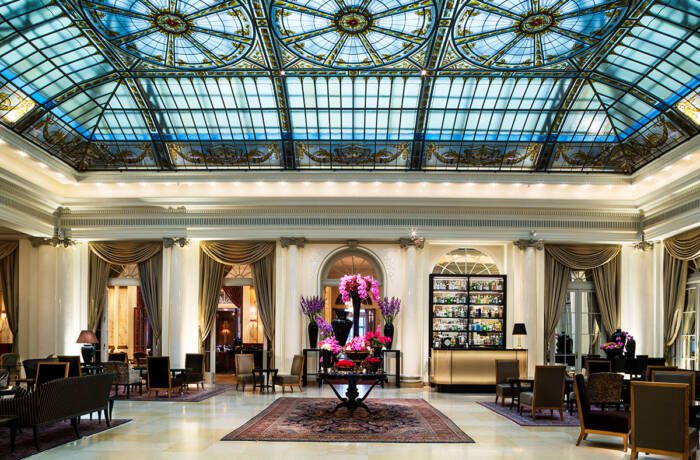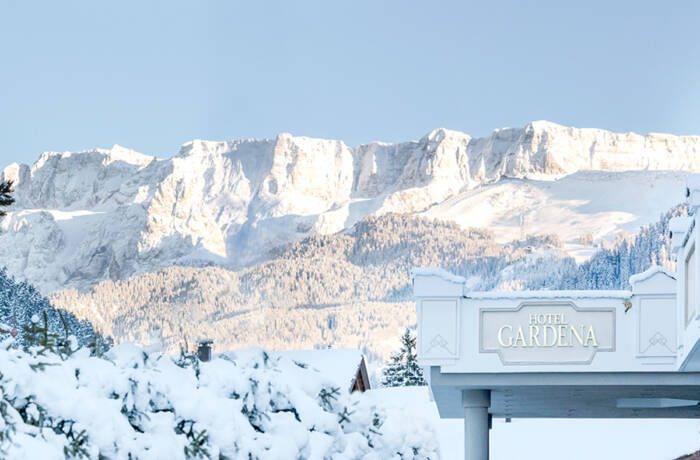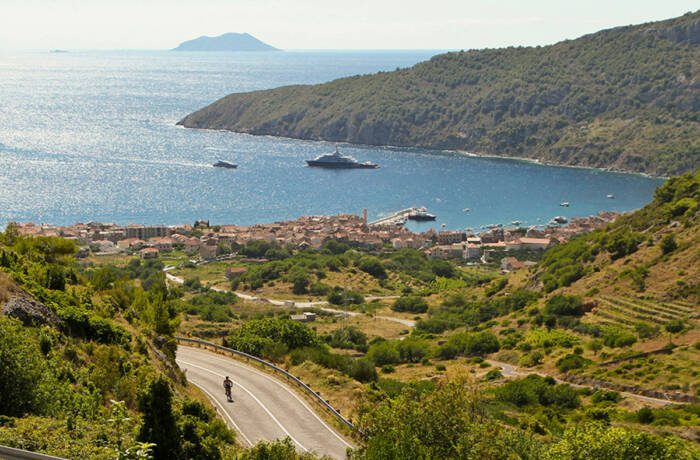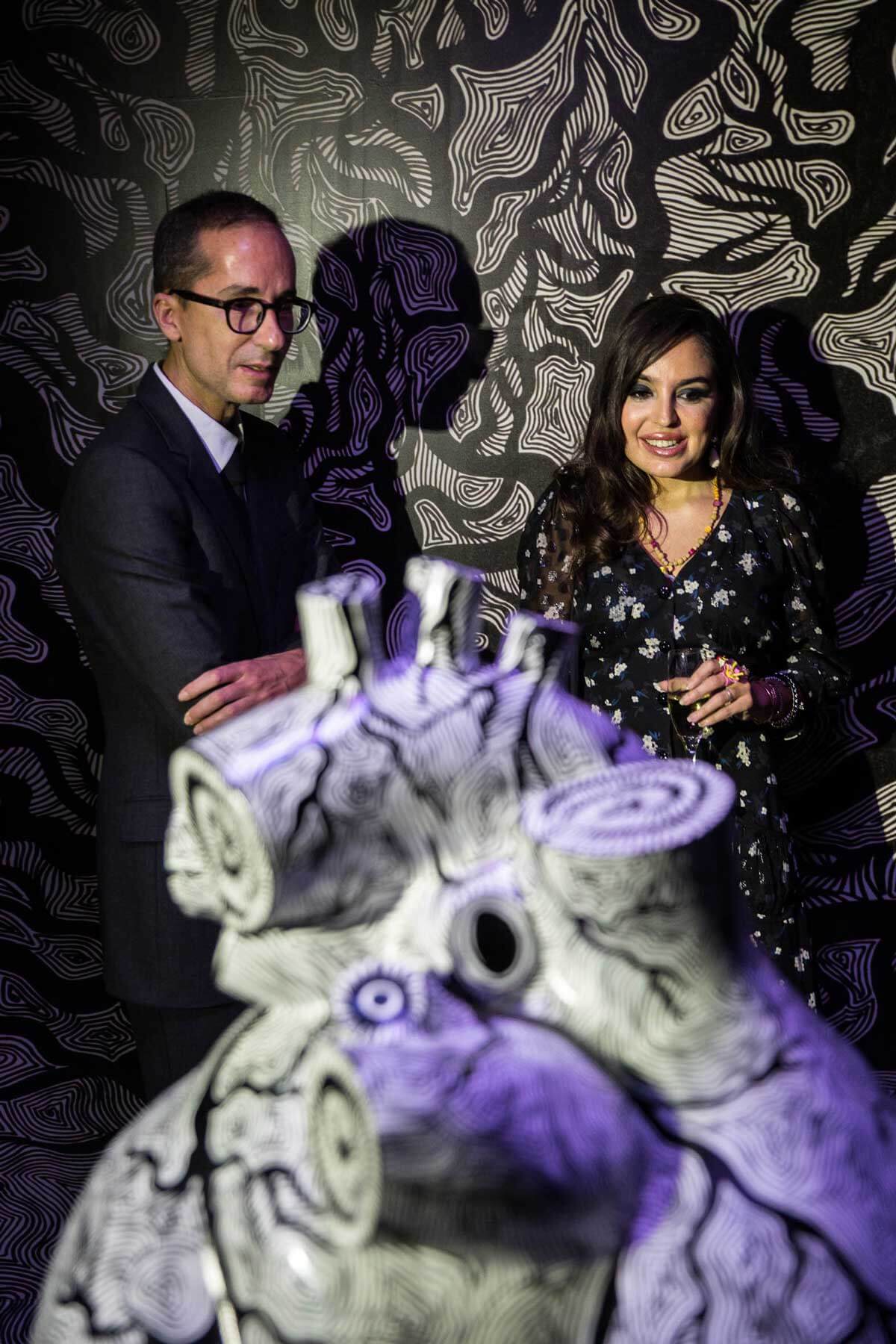
Leyla Aliyeva and Hervé Mikaeloff hosted the event in Berlin
As a race, we are responsible for wreaking a unique destruction on our planet. More than 90% of the world’s population of elephants, lions, rhinos and countless other species have been wiped out by our activities. A travelling art exhibition, the first of its kind, is aimed at raising awareness of this carnage: we caught it in Berlin, and it was quite the eye opener.
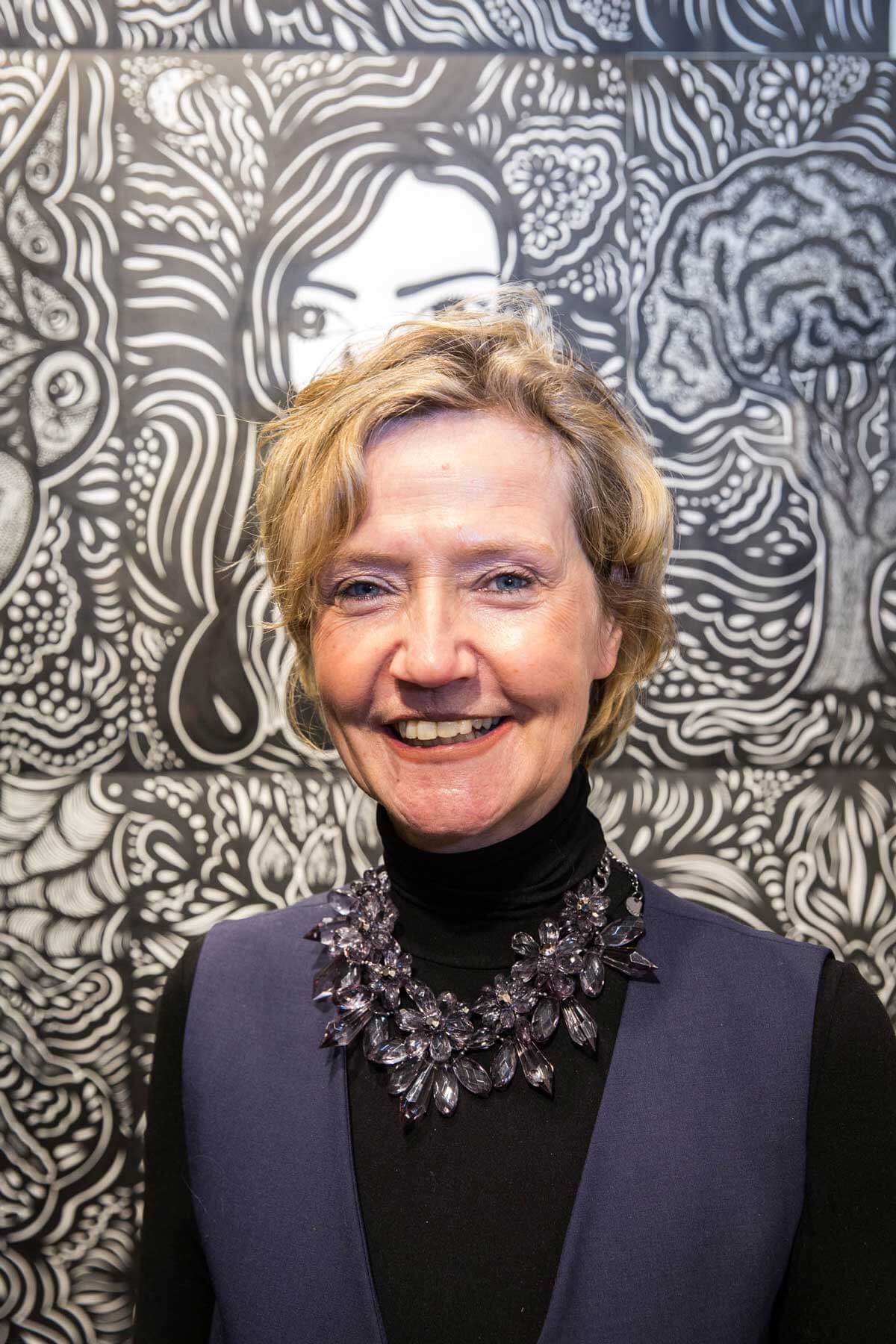
Heidrum Tempel, former German Ambassador to Azerbaijan

Nuran Huseynov
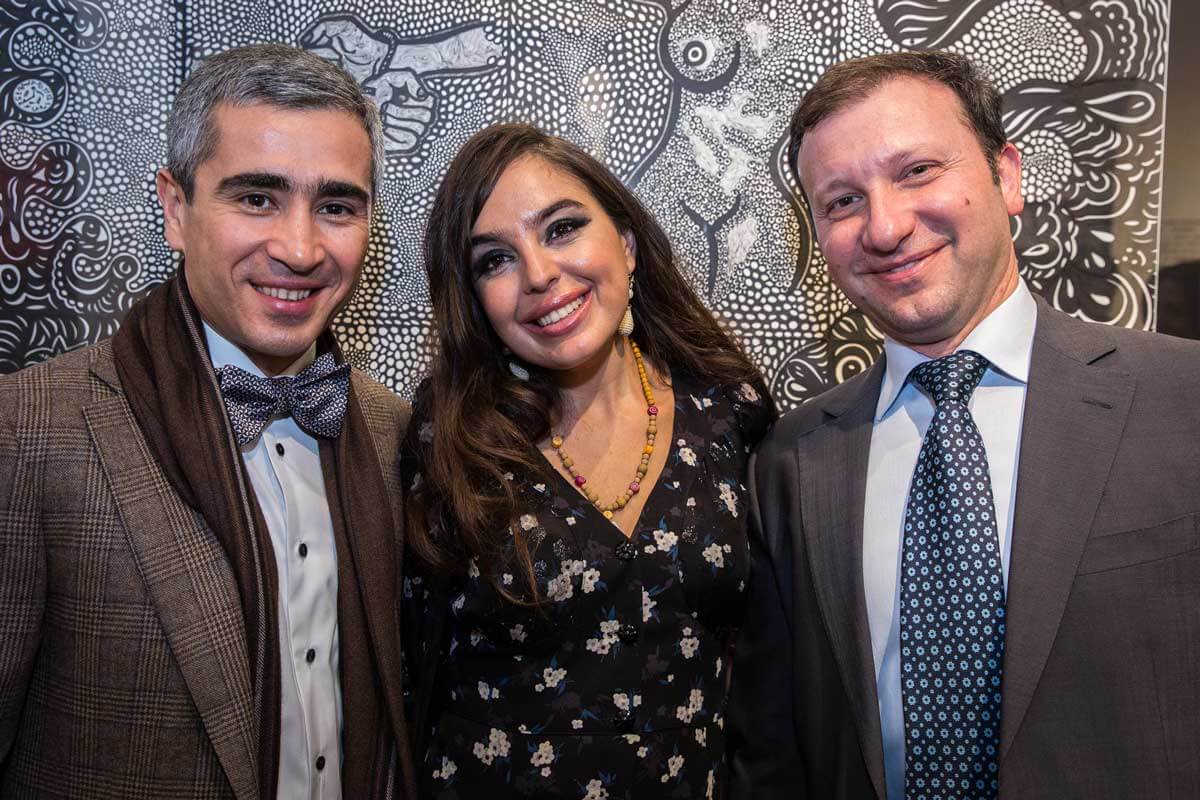
Anar Alakbarov, Leyla Aliyeva and Galerie Berlin-Baku owner Emin Mammadov
A small gallery in the Schoeneberg district of Berlin was recently host to a big evening: the preview of the Live Life art exhibition in support of endangered species. Previously showing in Paris, Live Life is a travelling show by Leyla Aliyeva and other artists from her homeland of Azerbaijan, curated by Hervé Mikaeloff, who works for LVMH Chairman Bernard Arnault.
Read next: Sushi Shop brings casual top end sushi to Paris and the world
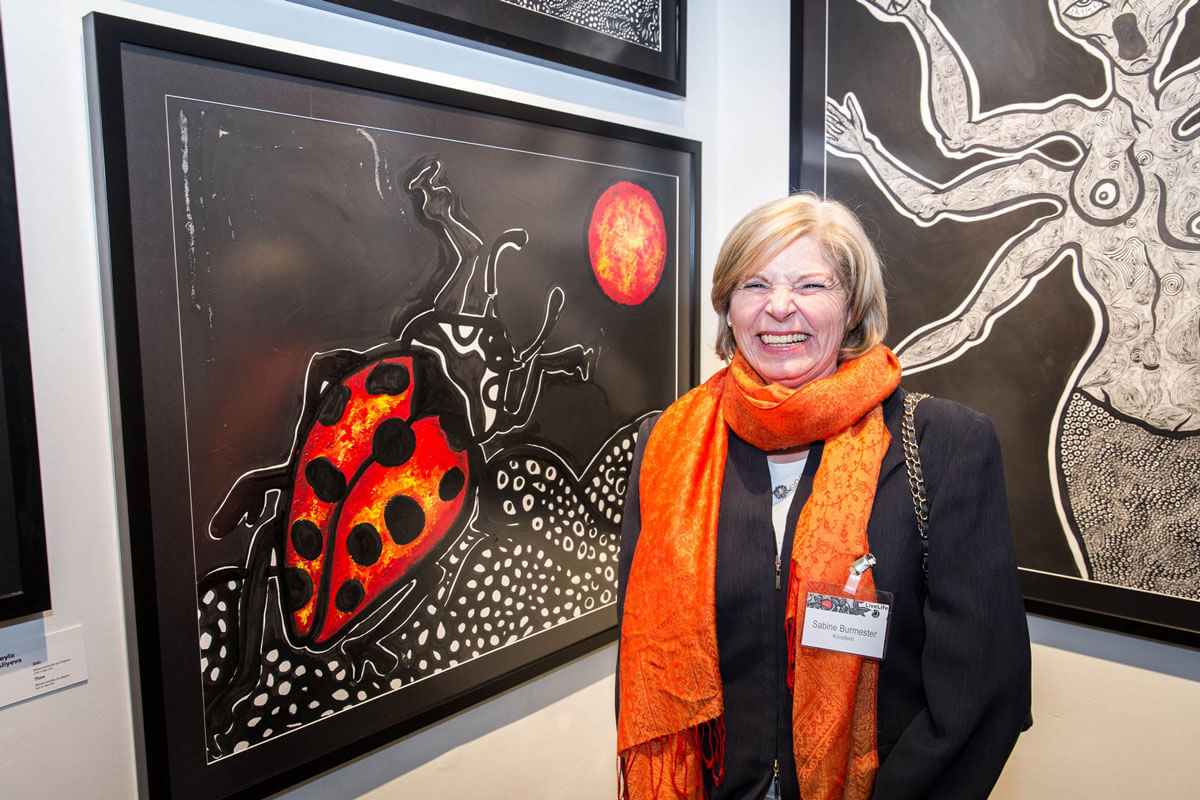
Sabine Burmester, artist
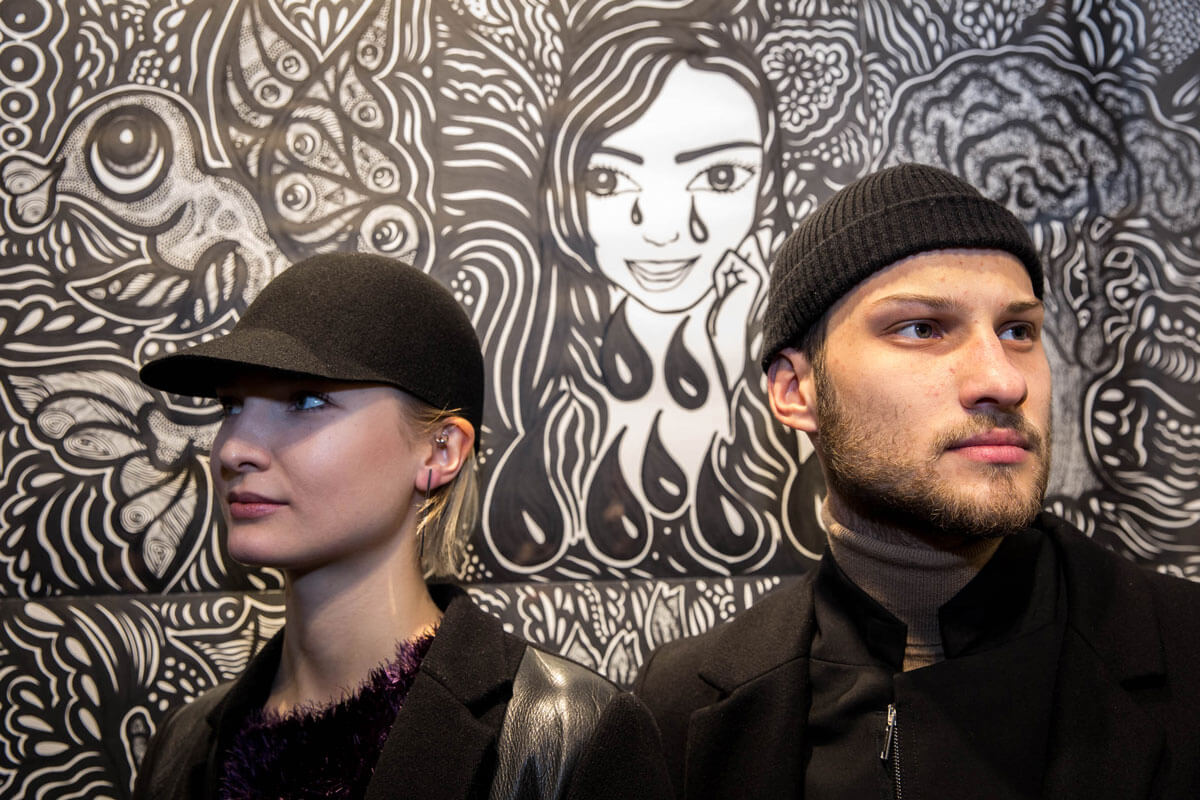
Tanya Makrinova and Jakub Kubica

Leyla Aliyeva and Naiba Shirinova

Peter Lindenberg, artist
Each show also includes works by local artists: in this case, Galerie Berlin-Baku hosted Peter Lindenberg, Sabine Burmester and Sandra Hoyn. The conversation was as warm as the evening outside was chilly and the compelling artworks portraying endangered species were admired by all. But the seriousness of intent of the show, inspired by Aliyeva’s IDEA environmental initiative, couldn’t be missed. The statistics were displayed boldly: 93% of elephants, 94% of rhinos and 97% of lions have disappeared over the past 100 years, through the actions of humans.
It’s dramatic, and it’s something that’s not high enough on the agenda of influencers around the world. The exhibition’s next stop: Moscow.
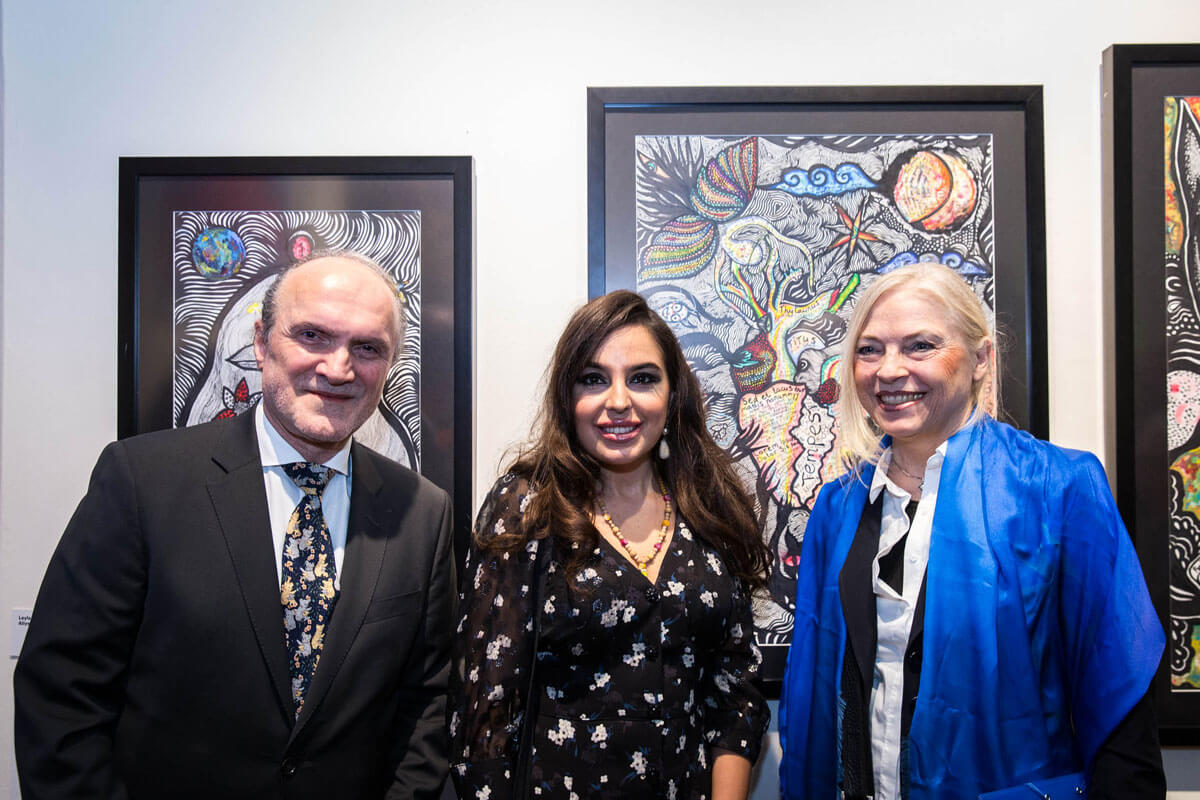
Galip Yilmabasar, Leyla Aliyeva and Bärbel Mietzschke

Ramin Hasanov, Azerbaijan Ambassador to Germany, and Leyla Aliyeva

Christa Korn-Wichmann, Elko Wichmann, Berta Rist, Hanna Ehrari
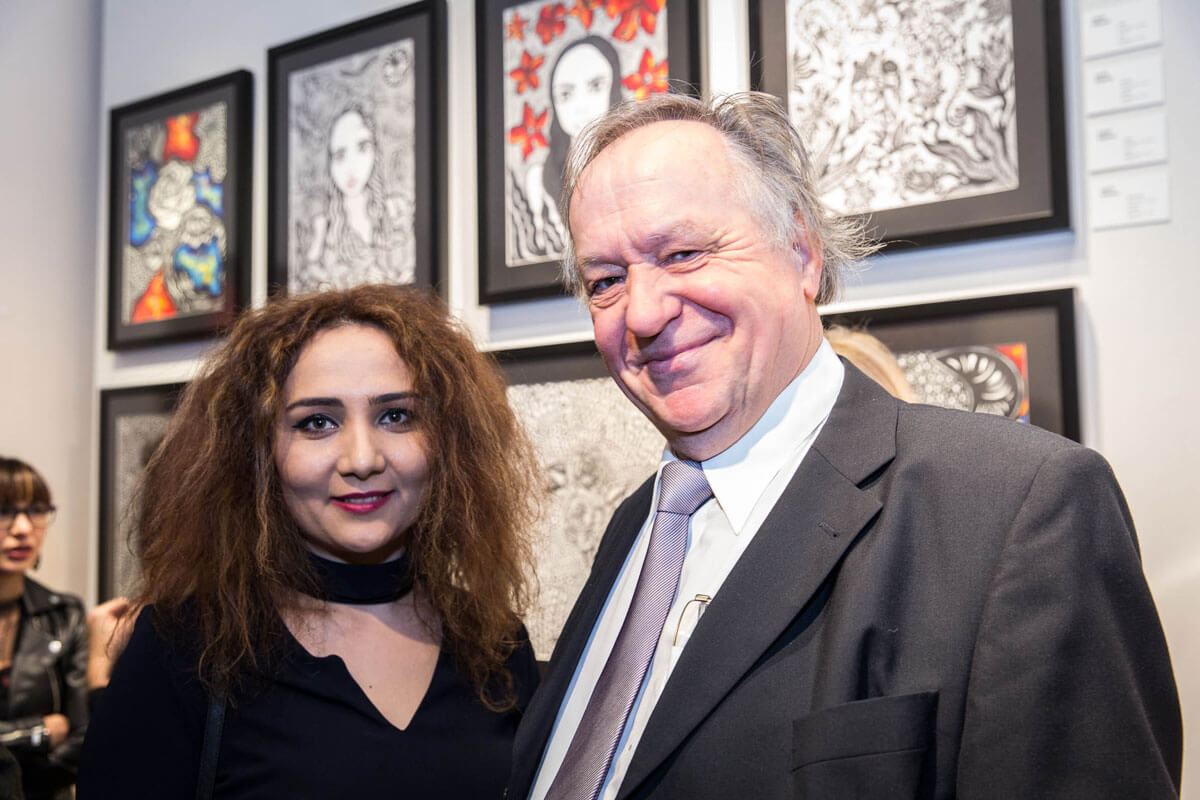
Raksana Civişova with Prof. Dr. Wilfried Fuhrmann, University of Potsdam

